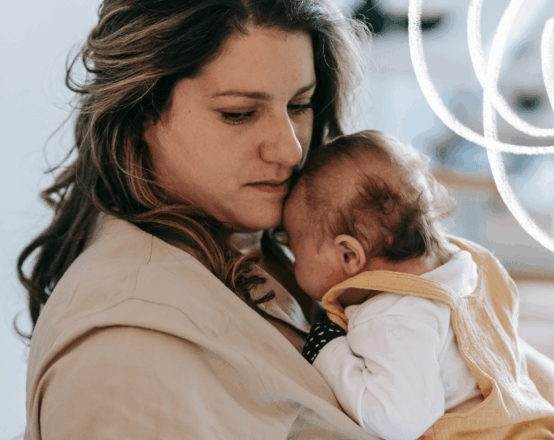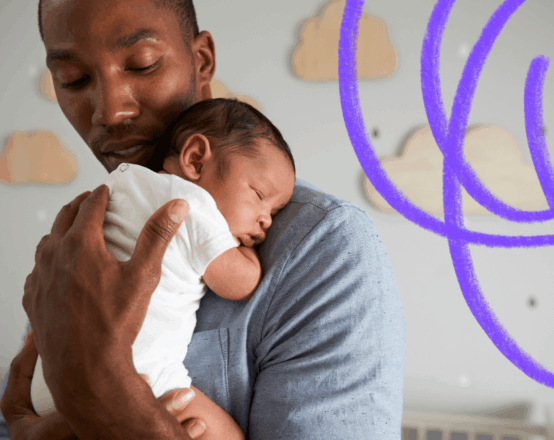World Suicide Prevention Day is an awareness day observed on the 10 September every year. The aim is to provide worldwide commitment to suicide prevention by starting the conversation about suicide, raise understanding and show that recovery is possible.
This year, we’re supporting Buckinghamshire Council’s Unmasking Parenthood campaign. Up to 1 in 5 women and 1 in 10 men develop mental health problems, such as depression or anxiety, during pregnancy or in the first year after childbirth. Suicide is the leading cause of maternal deaths between 6 weeks and 12 months of giving birth.
But we’re here to help and support you.
You’re Not Alone
Our Perinatal Community Support Worker helps women who are pregnant or have given birth in the past 12 months who have mental health needs. We provide one-to-one support, access to community groups, befriending and signposting for help in areas such as debt.
“They are a valuable service for those who are going through postpartum stress, anxiety and sadness.”
Person supported by our Perinatal Community Support Worker
To access this service, please speak to your GP, Health Visitor or Midwife about a referral to the NHS Perinatal Team.

Need help?
Many new parents feel overwhelmed, anxious or low. These feelings are common, but when they become persistent or intense, or if you’re having thoughts of suicide, it’s important to seek help.
Having thoughts of suicide doesn’t make you a ‘bad’ or unfit parent; it simply means you’re human and going through a tough time. Seeking help for these thoughts shows that you are a caring and protective parent who deeply cares about your baby’s and family’s wellbeing. Taking that first step to seek help is crucial for feeling better and taking care of both yourself and your baby.
Deciding to talk about suicide is an act of courage and hope for change. Allowing other people to support you increases safety for you and your baby.

If you’re in immediate danger of taking your own life, call 999 or visit A&E. You can also access urgent mental health advice from the NHS 24-hour helpline – Call ‘111’, then select option ‘2’.
Other support
- Bucks Mind’s Safe Haven is a safe and supportive alternative to A&E for people 18+. Aylesbury 01296 453017 and High Wycombe 01494 218098 (open 7 nights a week).
- Call Samaritans on 116 123 (always open)
- Text SHOUT to 85258
- Mind Support Line: 0300 102 1234 (Open 9am-6pm weekdays)
- CALM: 0800 58 58 58 (Open 5pm – midnight)
- If you’re under 25, Text THEMIX to 85258 (always open)
- Text HECTOR to 85258
- Papyrus Hopeline UK, Call 0800 068 4141 (9am to 10pm weekdays or 2pm to 10pm weekends)
- Childline 0800 1111 (always open)
- Buckinghamshire Family Information Service can also offer support and advice to help with your wellbeing.
- There’s also specialist support available if you have had a premature baby (Bliss) or Tommy’s Charity for support with baby loss.
- Contact Buckinghamshire Perinatal Mental Health Team at The Whiteleaf Centre, Bierton Road, Aylesbury, HP20 1EG
Open 9am to 5pm Monday to Friday
Tel: 01865 901749
Out of hours: 01865 902000 (for those under care of the Perinatal team)
Referrals email: [email protected]
The most important thing to do is to talk to someone. Talking about your problems and your feelings can help you to get the help you need and reduce the risk of suicide. Speak to someone now about how you are feeling and the thoughts you are having.
Worried about someone?
You or someone you know may be struggling if they:
- Talk about feeling hopeless, trapped, or like a burden.
- Reduced interest in personal hygiene and appearance.
- Social withdrawal (partner, family, friends).
- Missing healthcare appointments (ante and postnatal care, mental health).
- Feel disconnected from their baby or partner.
- Experience sleep issues, appetite changes or panic attacks.
- Use alcohol or drugs more than usual.
- Show sudden calmness after deep distress.
- Express thoughts of death or suicide, even jokingly.
- Give away possessions or say goodbye unexpectedly.
- Reckless behaviour
Men may show different signs:
- Irritability, anger, or aggression.
- Trouble concentrating or relaxing.
- Loss of interest in hobbies.
- Feeling unable to cope but hiding it well.
Ways you can help a friend or loved one who is struggling
Talking about suicide doesn’t increase the risk of someone attempting to take their own life. Instead, it can enhance safety by reducing feelings of isolation and hopelessness. Giving someone the space to talk openly about feeling suicidal offers opportunities for connection, reassurance, safe support, and hope for change. You can:
- Start a conversation, don’t be afraid to ask the direct question, many people feel relieved and less isolated when asked. Ask directly, “Are you feeling overwhelmed or having thoughts of suicide?”
- Listen without judgment. Let them share.
- Share a helpline with them, offer to sit with them and support them while they reach out for support.
- Help them contact their GP, health visitor, or a mental health service.
- If you think a friend or family member is in immediate danger of taking their own life, call 999 or visit A&E. Bucks Safe Haven service is a safe and supportive alternative to A&E.
For more information from the Unmasking Parenthood campaign, please click here.
If you need help urgently or you’re supporting a child, young person or adult who is feeling suicidal, please click the button below for more information, advice and signposting.
